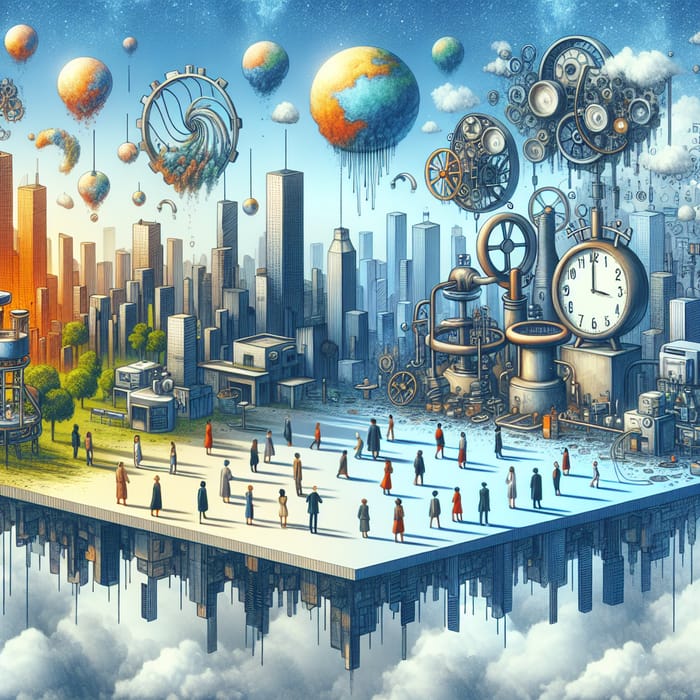The movie industry has always thrived on innovation, continuously evolving to capture the imagination of audiences. From the inception of sound in films to the paradigm-shifting advancements of CGI, the world of cinema is defined by its relentless pursuit of creativity. Now, AI movies is taking center stage, poised to revolutionize the way stories are crafted, produced, and consumed. By enhancing creative possibilities and redefining viewer engagement, AI technology is setting the foundation for a new era in filmmaking.

Redefining Creativity in Storytelling
AI is reshaping storytelling, pushing filmmakers to explore the boundaries of imagination. With tools powered by AI, creators can analyze narrative trends, evaluate audience preferences, and craft plots with a precision never seen before. By processing troves of data, AI can suggest compelling story arcs, original character developments, or plot twists that resonate deeply with viewers. This allows directors and writers to focus on refining the human, emotional components of their work while receiving assistive insights for innovation.
Furthermore, AI-based animation tools are expediting visual concept creation. High-speed rendering engines and generative algorithms can design virtual worlds, characters, and elements that meet directors’ visions faster than traditional methods. The result? Films that are enriched with bold creativity and crafted more efficiently, leaving creators free to concentrate on storytelling with depth and authenticity.
Revolutionizing Production Processes
Filmmaking has always been a resource-intensive venture, often limited by budgets, locations, or deadlines. AI’s integration into production pipelines is easing these constraints by automating repetitive and manual tasks. Scene pre-visualizations, location scouting based on AI-generated mock-ups, and digital duplication of specific environments are becoming accessible without the hefty price tags once associated with such feats.
AI further deepens its impact with intelligent editing tools—programs capable of identifying inconsistencies in film cuts, suggesting transitions, or even 'learning' a director's aesthetic style. This streamlining significantly reduces post-production timeframes and ensures excellence, making films more dynamic, budget-conscious, and accessible for creators ranging from independent filmmakers to large studios.
Enhancing Viewer Engagement
For movie enthusiasts, the experience no longer ends with the credits roll. AI is transforming how films interact with their audiences, offering tailored content recommendations and personalized viewing experiences. Streaming platforms already employ sophisticated algorithms that map a viewer's preferences to suggest movies they are likely to enjoy. This makes the process of discovering fresh narratives seamless and engaging for audiences.
On a broader scale, AI encourages interactive storytelling where viewers can influence plot directions in real-time. By blending audience data and predictive systems, films can adapt to their viewers' tastes, creating highly personalized story arcs they won’t find anywhere else. This dynamic structure is already reshaping the future of entertainment and strengthening the bond between creators and consumers.
Preparing for a Creative Revolution
The integration of AI symbolizes the start of a creative renaissance in cinema. By merging human artistry with computational power, filmmakers are realizing their visions with unparalleled precision. Professionals seeking to understand how these technologies fuel creative innovation radically influence all corners of filmmaking and must prepare themselves to ride this wave of storytelling evolution.
AI is not simply a tool—it is an invitation to reimagine cinematic limits. Whether enriching narratives, streamlining production, or captivating audiences in novel ways, the power of AI is undeniable. The question is no longer whether this technology will impact the film world, but how it can be harnessed most effectively to breathe new life into cinematic storytelling.
 icons at the top right corner of the subsection.
icons at the top right corner of the subsection.